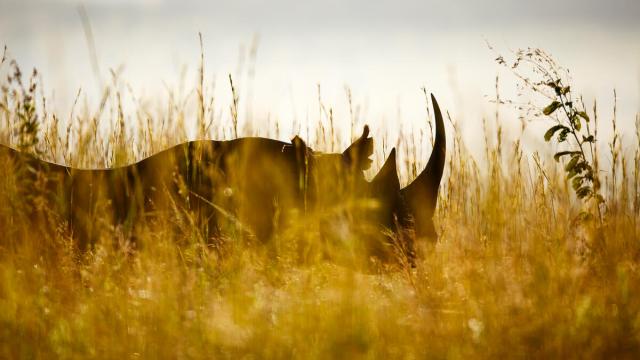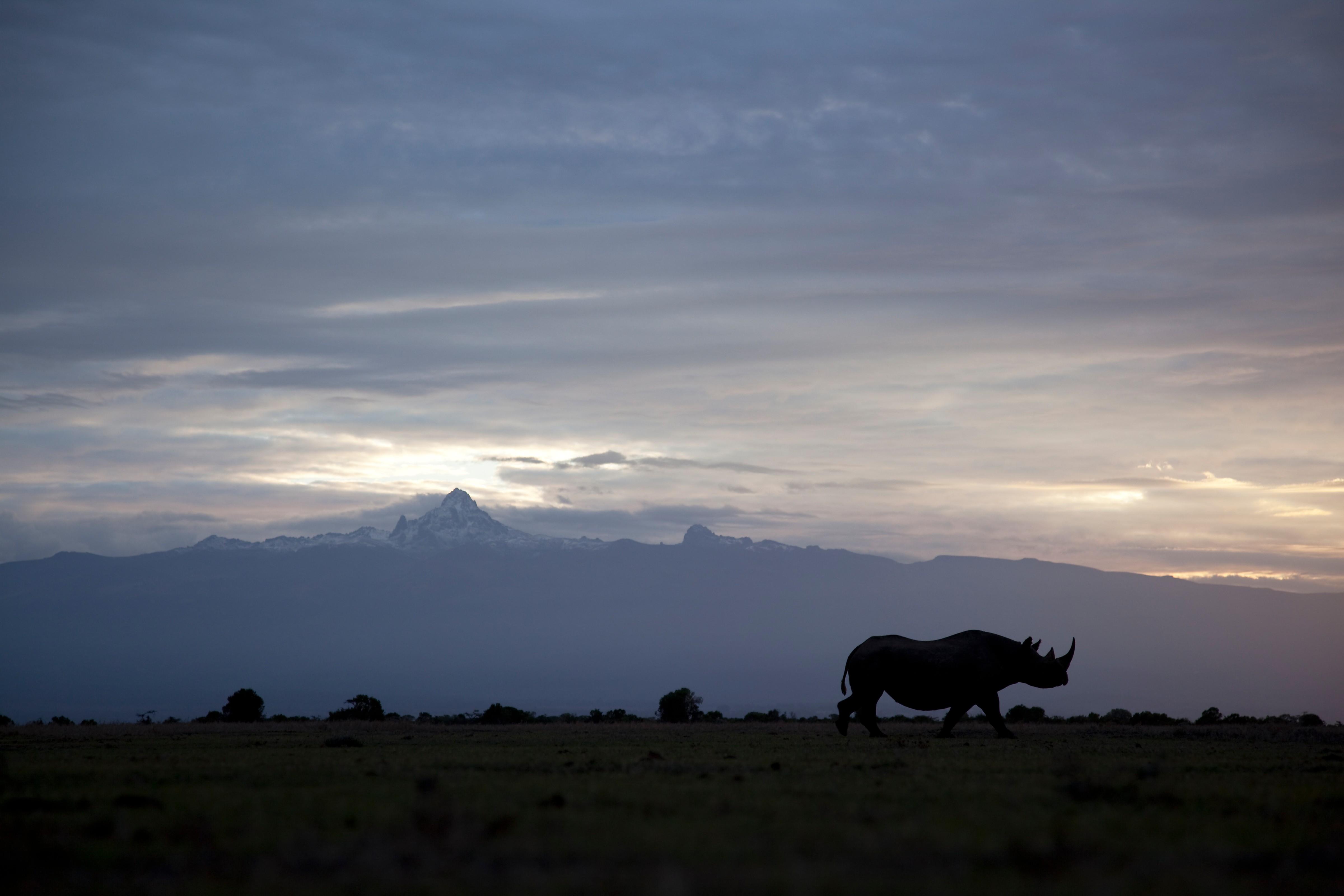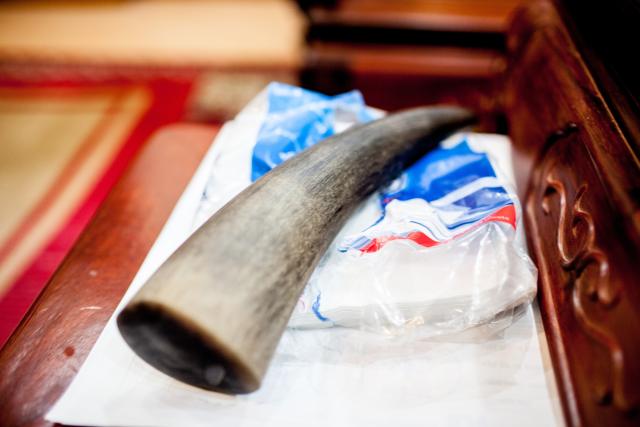
Issue
Rhinos are a vital part of nature in Africa. These shy giants spend their days grazing and browsing, which helps keep their habitats healthy for other wildlife. They also attract tourists, creating employment opportunities for local people.
Illegal hunting or ‘poaching’ is one of the biggest threats to rhino populations in Africa. Poachers will kill rhinos to supply and profit from the illegal international rhino horn trade.
During 2024, an estimated 516 rhinos were poached across Africa.
And, in Kenya rhinos desperately need more space to thrive, which means increasing the amount of safe habitat to take the pressure off overcrowded sanctuaries.
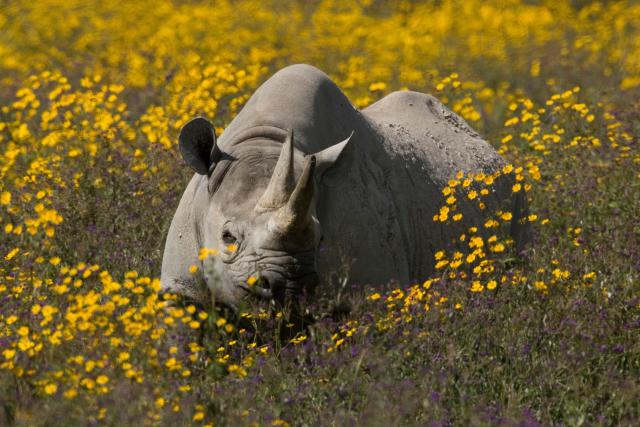
Solution
Kenya's Black Rhino Action Plan (2022-2026) guides Kenya’s black rhino conservation strategy. It tackles issues like rhino population growth, monitoring, habitat availability, and illegal hunting. The action plan was developed with funding from WWF-UK and our generous supporters.
Our team in Kenya support rhino population monitoring by providing equipment and infrastructure like watchtowers to help rangers. We support training, such as rhino monitoring courses, and efforts to improve rangers’ welfare. WWF-Kenya also constructed solar-powered water pumps in sanctuaries to provide a sustainable year-round water supply for people and rhinos.
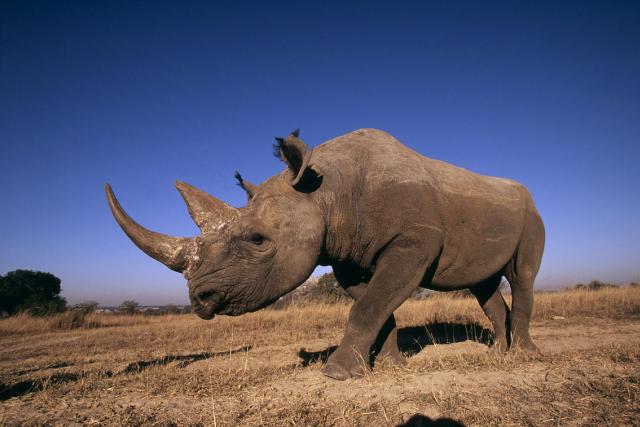
results
Despite poaching remaining high across the continent, Kenya’s black rhino population has more than doubled – from fewer than 400 in the 1980s to over 1,000 today. This means that Kenya’s long-term vision to reach 2,000 black rhinos by 2037 is on track. This encouraging progress is only possible because of many organisations including WWF, government authorities and local people working together.
And across Africa, there are other signs of hope. In Tanzania, black rhino populations are also increasing, up from 190 in 2020 to over 260 in 2024. And African authorities have estimated that black rhino numbers increased by 5.2% between 2023 and 2024, now totalling 6,788 individuals.
However, unfortunately Africa’s white rhino population has recently declined to 15,752 individuals, showing why continued action is needed to support rhino conservation.
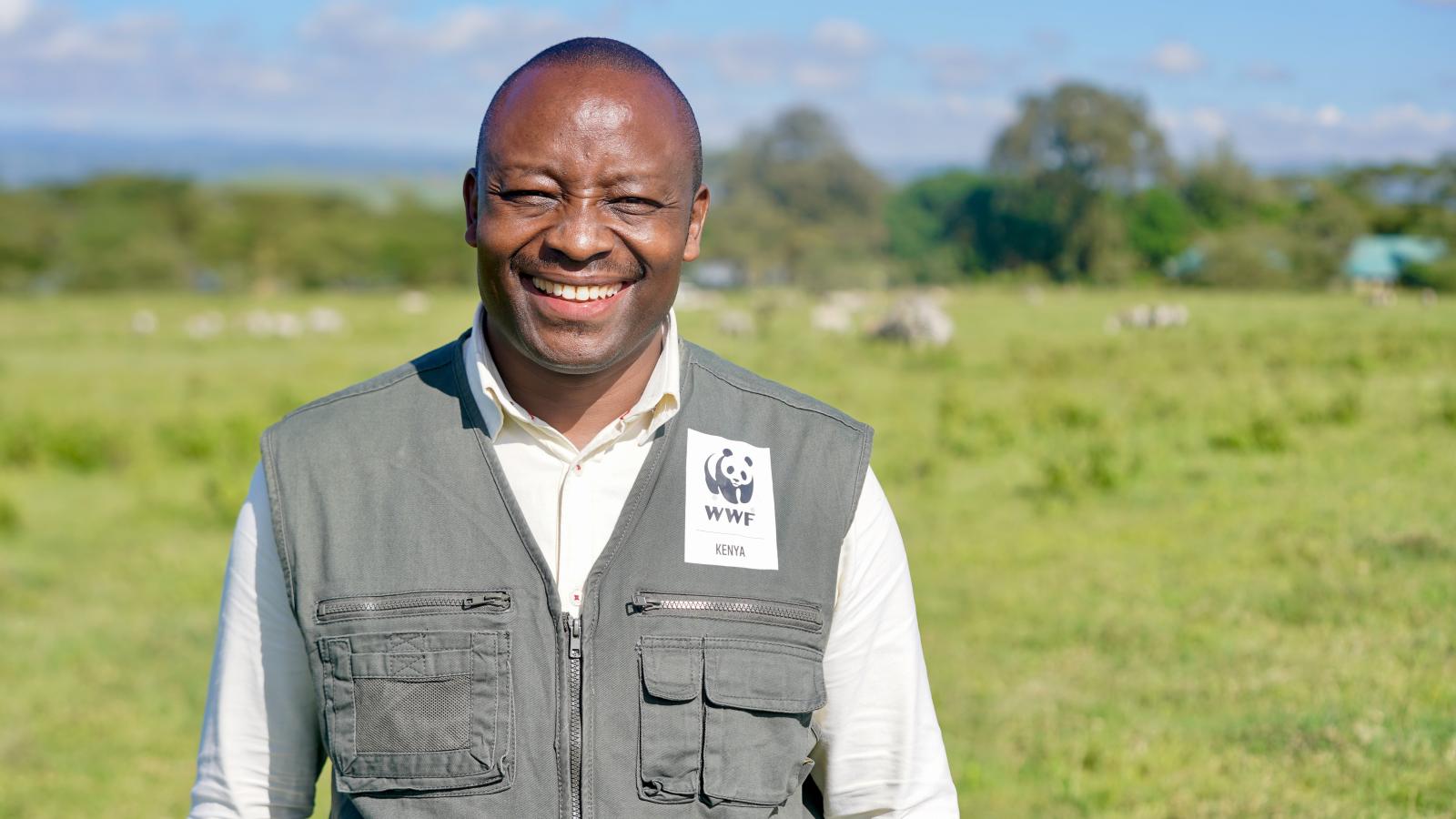
“This accomplishment represents a mission that seemed impossible when Kenya began its rhino conservation efforts. It has set a precedent for other rhino habitats across Africa, signalling the possibility of doubling rhino populations continent-wide.”
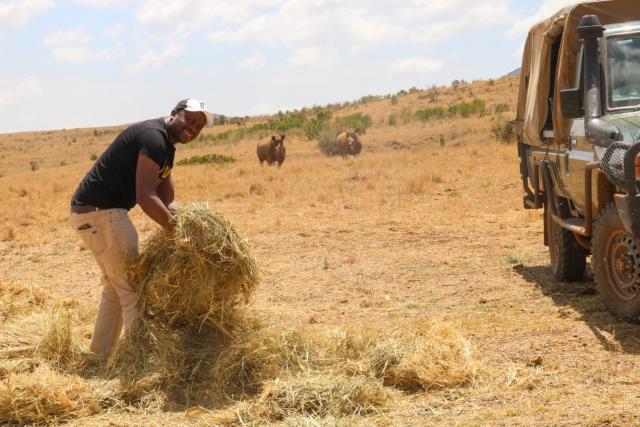
Emergency response
During the severe droughts of 2022 and 2023, WWF-Kenya provided crucial support to rhino populations facing dire conditions. This included:
- Feeding rhinos: Distributing hay and extra feed to keep rhinos healthy.
- Water top-ups: Distributing water in rhino sites across Kenya, ensuring that rhinos had access to enough water during the peak of the drought.
- Year-round water supply: Constructing solar-powered water pumps in sanctuaries where the situation was particularly bad. This sustainable solution guarantees a reliable water source, supporting conservation efforts and the wellbeing of both wildlife and people.
